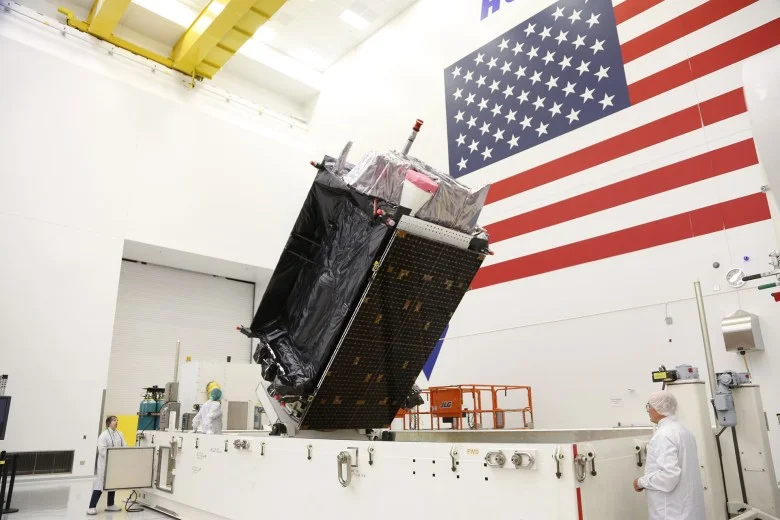
SpaceX Races Against GPS Threats: Urgent Launch of GPS III SV08
SpaceX is gearing up for another critical mission: launching the GPS III SV-08 satellite for the U.S. Space Force. This launch, scheduled for May 30 from Cape Canaveral Space Force Station, Florida, underscores the growing urgency to enhance GPS capabilities amidst increasing threats. What makes this mission stand out is its rapid execution and the shift from United Launch Alliance (ULA) to SpaceX, signaling the priority placed on deploying advanced anti-jamming technology into orbit.

The decision to switch from ULA's Vulcan rocket to SpaceX's Falcon 9 highlights the military's commitment to accelerating the deployment of these crucial satellites. As Colonel Andrew Menschner, commander of Mission Delta 31, explained, the addition of SV-08 will significantly bolster the constellation's resistance against interference. This move follows a similar switch for the GPS III SV-07 launch in December, further emphasizing the need for speed. The initial GPS III SV-08 launch planning kicked off in February, with Lockheed Martin and SpaceX closely following on March 7. Launch window: 1:23 p.m. to 2:08 p.m. ET Friday, May 30, 2025
Why the Rush? GPS signals are increasingly targeted by jamming and spoofing, both by hostile nation-states and inadvertent commercial sources. This makes the advanced anti-jamming capability of the GPS III satellites essential for both military and civilian applications.
The GPS III series offers nearly eight times the anti-jamming capability of previous versions. These satellites broadcast both M-code (a hardened, military-only signal) and L5, a new civilian signal operating in a frequency band reserved for aviation safety. SV-08 will be the 26th M-code capable satellite and the 19th to broadcast the L5 signal. Over 1,100 commercial flights a day are impacted by GPS interference and jamming, Menschner said.
Furthermore, the upcoming Operational Control Segment (OCX) ground system promises to fully unlock the potential of the M-code and L5 signals, enhancing both defense operations and civilian aviation safety.
The accelerated timeline for GPS III SV-08 – just under three months from contract award to liftoff – is remarkable. This was possible thanks to the design flexibility of the GPS III program, qualified on multiple launch vehicle providers. This adaptability “is a tremendous lesson learned that we’re passing on,” Menschner noted.
While Vulcan is still expected to handle the final two GPS III missions, along with the debut of the next-generation GPS IIIF satellite, the focus remains on getting critical GPS enhancements into orbit as quickly as possible. As Walt Lauderdale, mission director and chief of Falcon systems at Space Systems Command, pointed out, this launch allows for the earlier deployment of M-code capabilities.
This urgent mission highlights the increasing importance of secure and resilient GPS technology in an era of growing electronic interference. SpaceX's role in accelerating this deployment underscores the company's growing significance in national security space missions.
What are your thoughts on the growing threats to GPS, and how can we ensure a more secure navigation system for the future? Share your opinions in the comments below!